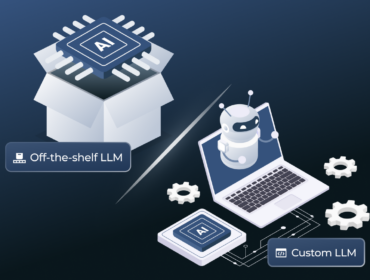According to NonFungible.com, in the first quarter of 2021, the total market capitalization of large NFT projects increased by 2100%. Most NFTs sell out instantly, with the most famous NFTs selling for nearly $70 million. In addition, celebrities support the NFT hype by tokenizing their music, paintings, memes, short videos, logos, computer code, and the like.
At the same time, the primary beneficiaries of the NFT market were sites that provided the most straightforward purchasing and selling experience for NFTs.
This article will take you through the best technologies for NFT marketplace development, what NFTs are, and where you can use them. We’ll also go through the process of developing your own NFT marketplace and the costs associated with every stage of development.
Why create an NFT marketplace?
The reason to create an NFT marketplace and sell NFTs is quite simple — NFTs are a great way to develop a revenue stream and grow a dedicated following. Some NFTs are worth more than others, and therefore, people are willing to pay much more for them. Meanwhile, other NFTs are sold for pennies. The principle of value assessment of an NFT is straightforward: the more in demand an NFT lot is, the higher its price will be. Here are some more examples of famous NFT lots:
- Beeple’s digital collage “Every Day: The First 5,000 Days” sold at Christie’s for an impressive $69 million.
- Jack Dorsey’s first tweet sold for $2.9 million.
- The animated film Nyan Cat sold for $590,000.
- A kitten from CryptoKitties was sold for $172,000.
How does the NFT marketplace work?
Unlike Bitcoin or Ethereum, you cannot directly trade non-fungible tokens on regular cryptocurrency exchanges. To buy and sell NFTs, you need dedicated trading platforms that allow you to issue, hold, and trade non-fungible tokens. This market is now dominated by large marketplaces such as OpenSea, Rarible, Superfarm, and Mintable.
These marketplaces generate NFTs using special smart contracts that add a set of unique information (metadata) to every individual token and prescribe its main parameters (name, immutability, inseparability, address/number, etc.). After that, non-fungible tokens can be bought and sold on the site at a fixed price or via auction.
The best blockchain platforms to choose from
- Ethereum is one of the most popular platforms when it comes to the NFT market or the development of non-fungible tokens. Since a token’s transaction history and metadata are publicly verifiable on Ethereum, it is easier to prove ownership history. Due to Ethereum products sharing a common backend, NFTs are transferable between products, and what’s more, Ethereum never goes down. As such, the tokens are always available for sale.
- Flow is a faster and decentralized blockchain designed for the next generation of digital assets, applications, and games. The platform is widely used to create both NFT and NFT marketplaces using the Cadence programming language.
- Tezos is an open-source blockchain platform for applications and resources, maintained by a community of developers, researchers, and validators. Using a pre-compiled FA2 NFT contract written in the LIGO smart contract language, Tezos goes hand-in-hand with the development of NFT marketplaces.
- Cardano is a blockchain platform with the technologies and tools needed to provide unrivaled security and resilience for decentralized systems and applications. It also supports the development of NFTs and other digital assets.
The most-popular storage platforms
- IPFS is a peer-to-peer hypermedia protocol designed to support the decentralized storage of media content. Since the media file associated with an NFT cannot be stored directly on the blockchain, IPFS is used to store all of this data.
- Filecoin is a decentralized storage network specifically designed to store the most essential information, such as media files. The storage platform includes everything a developer needs to get started with decentralized storage for NFTs. With these benefits in mind, Truffle Suite has also launched an NFT development template with Filecoin Box.
- Pinata is another popular platform for uploading and managing files on IPFS. It provides safe and verifiable files for NFTs.
NFT Standards
ERC-721
ERC-1155
FA2
dGoods
TRC-721
Front-end Frameworks
React
Angular
Vue
Other critical technologies to consider
If you want to benefit from the fast-growing and revenue-building model of an NFT market, your marketplace should include the following:
- A Storefront with a flawless UI/UX for a seamless selling process that includes search, filters, bidding functionality, listings management, and more.
- Bullet-proof smart contracts for proper NFT minting and IP tokenization.
- Cybersecurity capable of maintaining stringent protocols is a must for ensuring protection against internal and external threats.
- Intuitive crypto-native payment options deliver a straightforward experience for users to buy and sell NFTs using cryptocurrencies, including the use of traditional credit and debit cards.
- Convenient B2B portal for managing relationships with asset-owners, all from a single platform.
- AML/KYC compliance to prevent money laundering, enable customer transaction monitoring, and generate reports on suspicious financial activity.
- Efficient back-office that integrates with CRMs, ERPs, and third-party services to automate internal operations.
If you are looking to set up your own NFT marketplace, please consult our NFT development experts — ready to take you from consultation to development and launch your marketplace platform.
Unicsoft clients get the best Non-Fungible Token creation services with built-in security and consistent support over the lifetime of a project. Start reaping the benefits of NFTs with a trusted technology partner.





![Best Technologies for NFT Marketplace Development What’s the EU Artificial Intelligence Act and How to Comply? [Webinar]](https://unicsoft.com/wp-content/uploads/2024/03/Cover_1140_v1.1-370x280.png)

